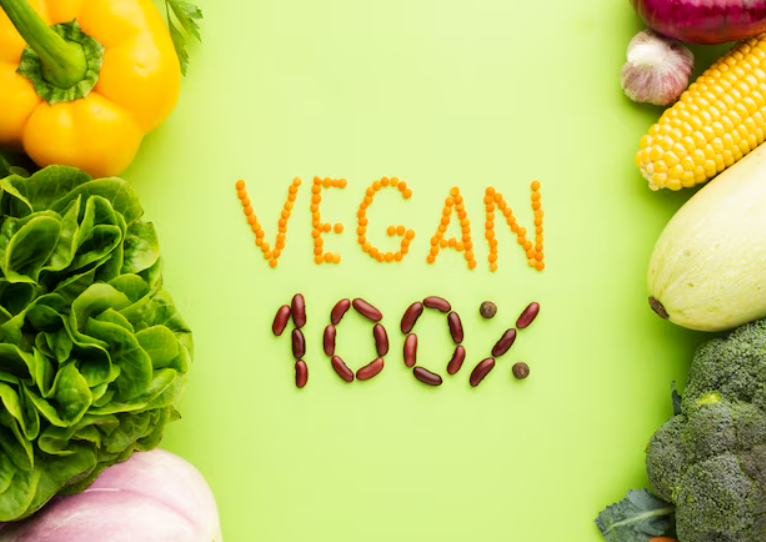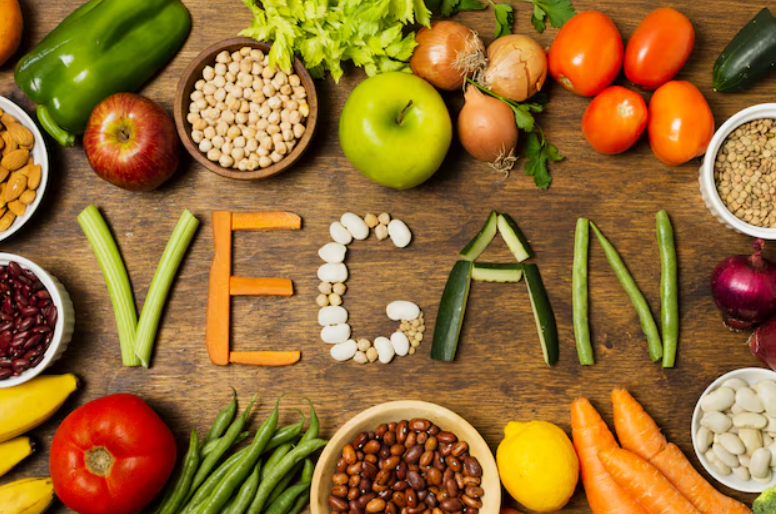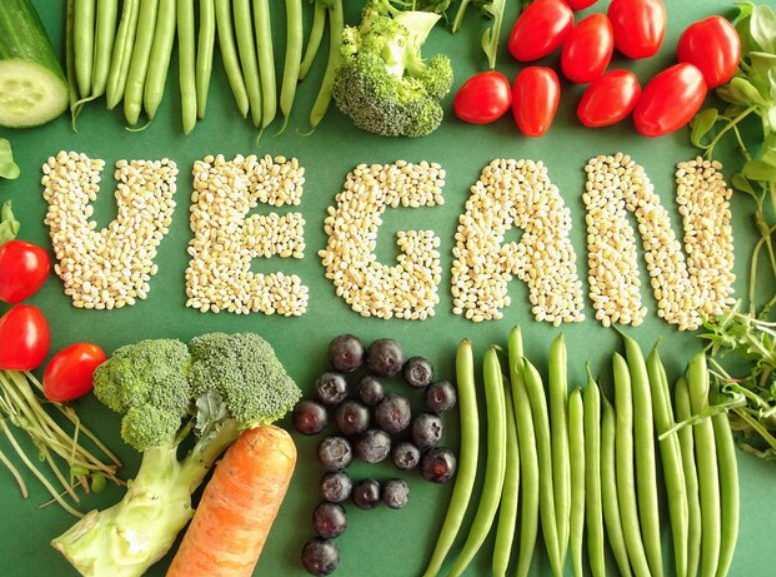A Complete Guide to the Distinction Between Plant-Based and Vegan
The labels “vegan” and “plant-based” have gained popularity in recent years. Many adopt these diets for different reasons. These include ethical convictions, environmental concerns, and health advantages. Although used interchangeably, significant differences exist between the two. It’s important to understand what these diets include. Understanding their effects on health, the environment, and morals is crucial. This is true whether you want to embrace one or are simply curious.
Differences between Plant-Based vs. Vegan Diet
Although often used interchangeably, “vegan” and “plant-based” have different definitions. Vegan diets are driven by ethical considerations. They avoid animal products and support animal rights. This lifestyle extends beyond food and includes clothing and hygiene items. A plant-based diet emphasizes unprocessed, minimally processed plant foods. It restricts or eliminates animal products to promote health. Plant-based diets are more adaptable and allow small amounts of animal products. Both diets offer significant health benefits. These include lower risks of chronic diseases and improved well-being. The fundamental difference is in their motivations. A plant-based diet focuses on health, while veganism focuses on ethics. Your beliefs, health goals, and ethics will determine your choice.
Key Differences Between Plant-Based and Vegan Diets
Below are the differences between plant-based and vegan diets. It discusses the ideas, foods, health benefits, and motivations behind each.
A Vegan Diet: What Is It?
A vegan diet avoids all animal products, including meat, dairy, eggs, gelatin, honey, and other additives. Veganism extends beyond food and includes clothing and personal care items. Vegans opt for cruelty-free substitutes like leather, wool, and silk.
Ethical considerations often drive people to adopt veganism. They choose veganism to reduce animal suffering. They avoid animal products to oppose industrial farming and animal abuse. Veganism aligns with the belief that animals have inherent rights. These rights should not be exploited for human gain. Vegan diets are rich in fruits, vegetables, grains, legumes, nuts, seeds, and plant-based alternatives. Examples include tofu, tempeh, and almond milk.
Many vegan substitutes are available today, like plant-based cheeses, burgers, and sweets. While plant-based meals are the main focus, health benefits aren’t always the top priority. Vegans may consume processed, unhealthy foods if they don’t contain animal-derived ingredients.
A Plant-Based Diet: What Is It?
A plant-based diet emphasizes whole, minimally processed plant foods, such as whole grains, legumes, fruits, and vegetables. The term “plant-based” often refers to a diet that prioritizes nutrient-dense foods for health. A plant-based diet is typically driven by health concerns but may also have ethical and environmental reasons.
The main goal is to eat foods in their original form. The diet reduces the intake of processed foods, oils, sugars, and refined grains. A plant-based diet can improve health by lowering cholesterol, enhancing heart health, and preventing chronic diseases. The objective is to consume nutrient-dense foods while minimizing processed items.
Although plant-based diets emphasize plant foods, they don’t always exclude animal products. Depending on personal goals, some may include small amounts of animal products like dairy or eggs. The key principle is to primarily eat plant-based meals with minimal animal products.

Important Distinctions Between Plant-Based and Vegan Diets and Their Ethical Aspects
The ethical distinction between veganism and plant-based diets is significant. Veganism is based on ethics, forbidding the exploitation and suffering of animals. Vegans choose cruelty-free substitutes for animal products in all areas of life. A plant-based diet, however, focuses more on health. Ethical issues are secondary or optional in a plant-based diet.
Health Focus: Plant-Based Diet vs. Veganism
Health is typically the main goal of a plant-based diet. People choose it to maintain a healthy weight and avoid chronic illness. It emphasizes whole, nutrient-dense plant foods while reducing processed foods, sweets, and unhealthy fats. Veganism doesn’t always focus on health, although it may offer health benefits. Vegan junk food and highly processed meals may not provide the same health benefits.
Dietary Restrictions: Key Differences
A vegan diet avoids all animal-derived foods, such as meat, dairy, eggs, honey, and food additives. Veganism aims to avoid all forms of animal exploitation. In contrast, a plant-based diet allows small amounts of animal products. These may include dairy, fish, or eggs, depending on health goals.
Flexibility in Approach: Plant-Based vs. Vegan
A plant-based diet offers flexibility in individual choices. People may include small amounts of animal products or processed plant-based alternatives. This depends on their preferences and health goals. Veganism is a less flexible lifestyle focused on eliminating all forms of animal exploitation.
Environmental Impact of Plant-Based and Vegan Diets
Both plant-based and vegan diets lead to positive environmental results. Plant-based foods have a smaller carbon footprint than animal products. Many vegans choose their diet to reduce the environmental impact of factory farming. Veganism focuses more directly on environmental concerns. A plant-based diet may not prioritize environmental issues or animal welfare as much as veganism.
Cultural and Social Aspects of Veganism and Plant-Based Diets
Veganism is often linked to a broader cultural and social movement. Many vegans support animal welfare causes and may participate in activism. Plant-based diets are growing in popularity but are usually personal health choices. They don’t have the same societal or political significance as veganism.
The Health Advantages of a Vegan Diet
A vegan diet offers many health benefits when balanced with a variety of plant foods. Vegans have lower risks of chronic diseases like heart disease, high blood pressure, and type 2 diabetes. Vegan diets are often high in fiber, antioxidants, and essential vitamins and minerals, which support overall health. Additionally, a vegan diet can improve gut health and help with weight management. Vegans often have lower body mass indices (BMIs) since plant foods are naturally lower in calories and fat. The high fiber content in plant foods promotes a healthy digestive system and may help prevent constipation.

Advantages of a Plant-Based Diet for Health
A plant-based diet offers similar health benefits, especially in preventing chronic diseases. Studies show that a plant-based diet can lower blood pressure, improve cholesterol, and reduce heart disease risk. Eating fruits, vegetables, whole grains, and legumes can improve blood sugar control and reduce inflammation. The focus on whole, unprocessed foods provides vital nutrients without added sugars, unhealthy fats, or refined grains. This approach can help people lose weight, feel more energetic, and live longer.
